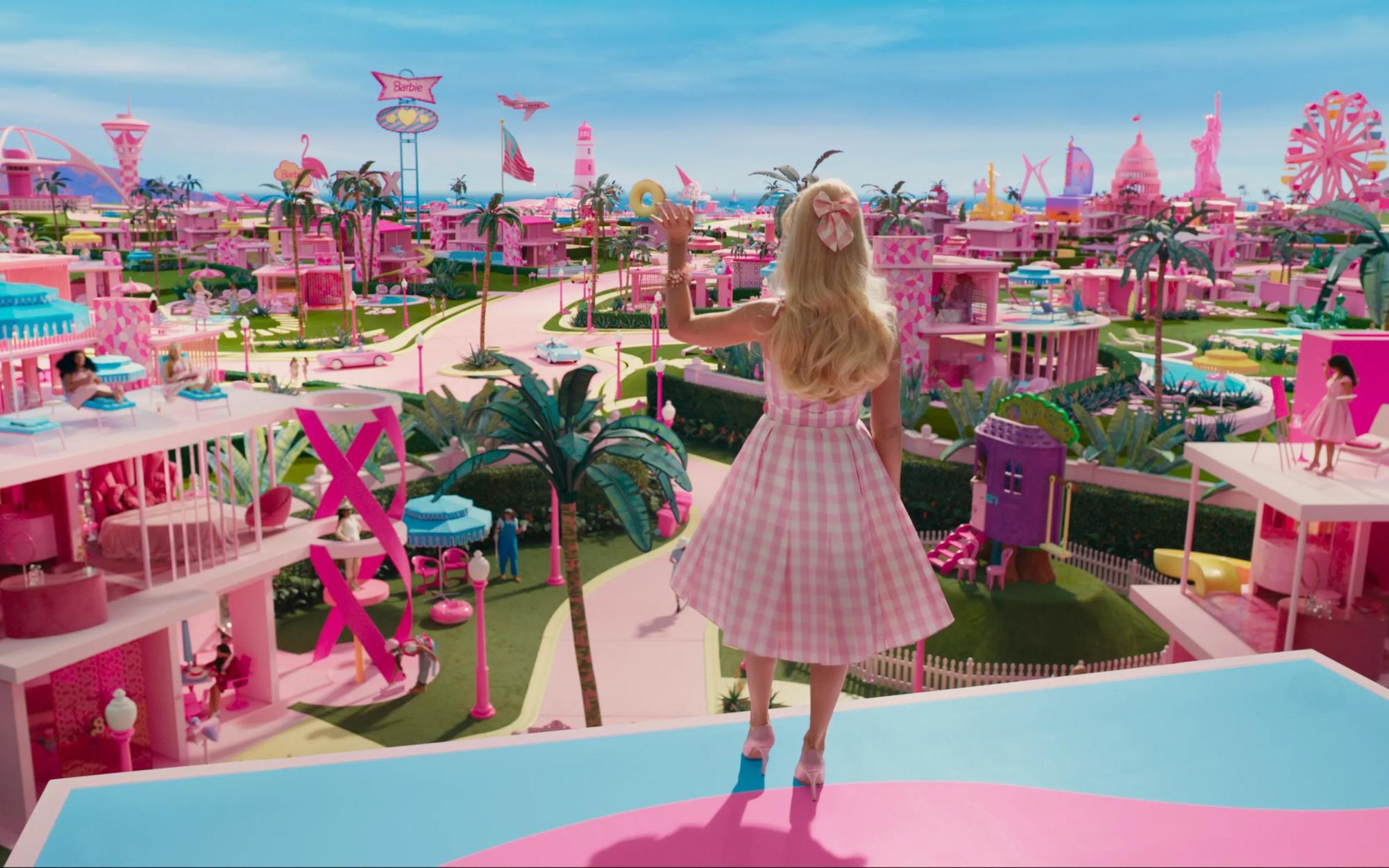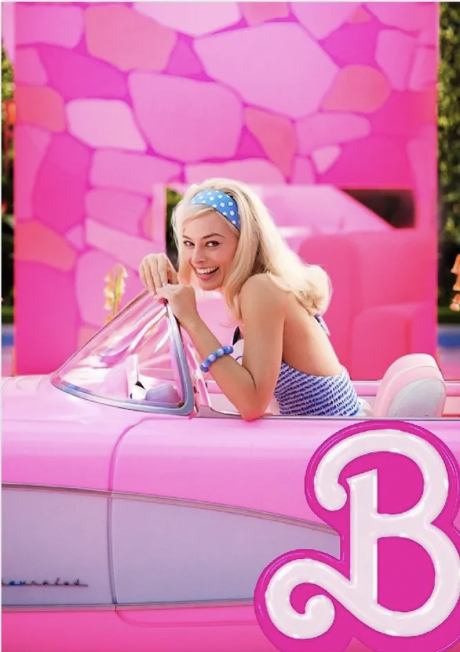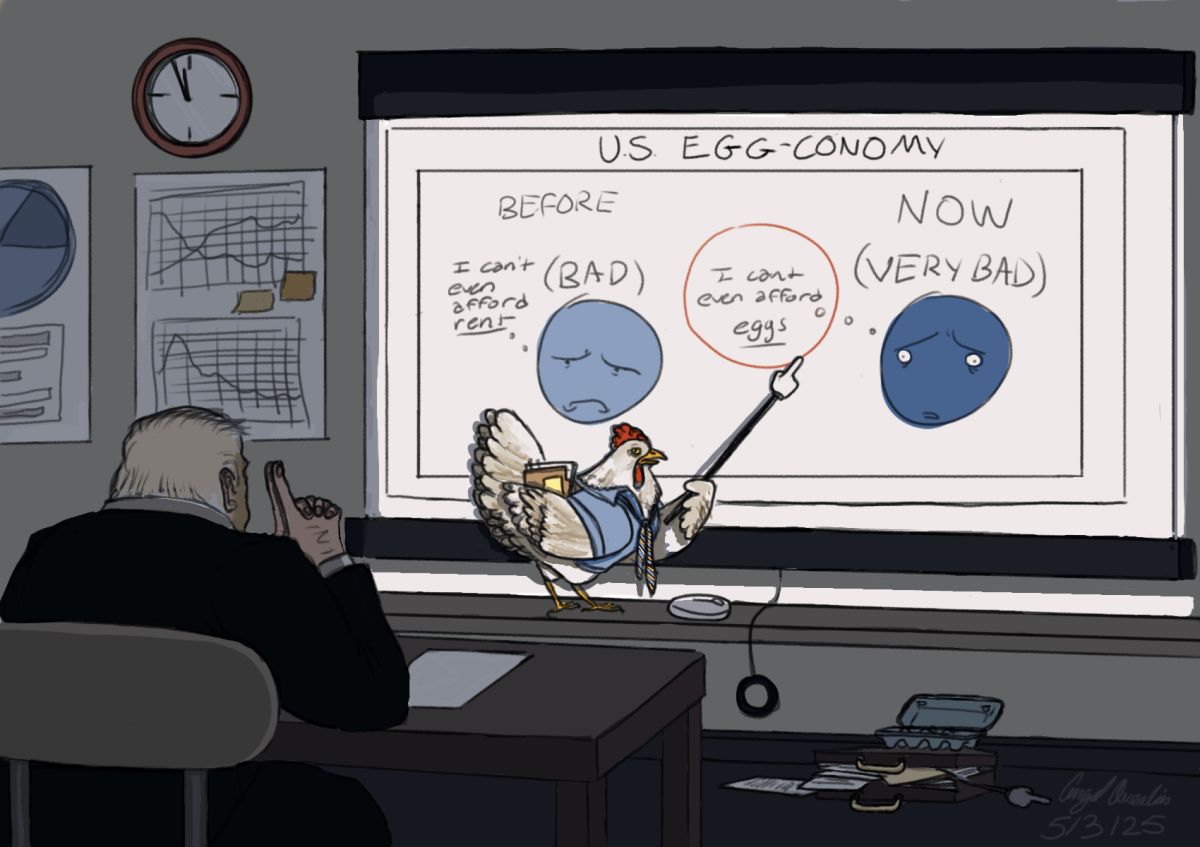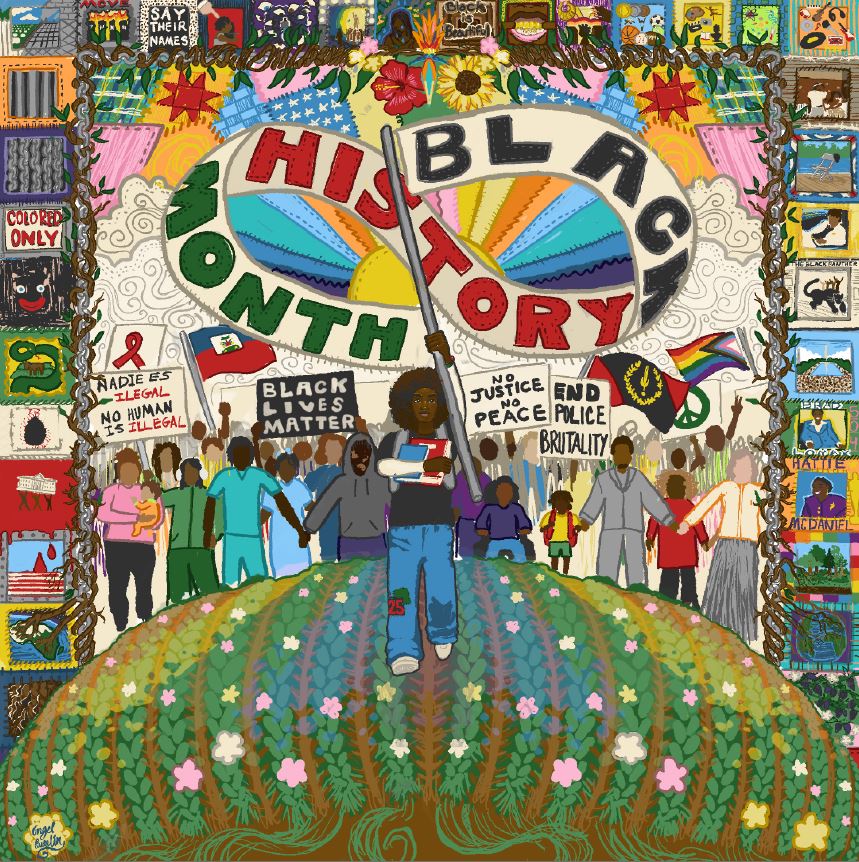“Hi, Barbie!” Last year the Golden Globe Awarded film Barbie was released, stirring controversy and nostalgia. Many consider Barbie to be the epitome of feminism.
Sharon Swidler, a CLC professor who teaches women and the arts, said she is conflicted on whether Barbie is a feminist icon.
“Perhaps now she is considered a feminist icon,” Swidler said. However, Swidler said in the past the doll’s feminism was not outwardly noticeable.
“She was more of an ideal,” Swindler said, adding that Barbie was modeled as the standard for women. “When I got my first Barbie a long time ago, she was model thin and fashionable.”
Swidler highlighted that Barbie has no genitals.
“Women were raised to not pay attention to their genitals – that they weren’t for them to own,” she said.
Swidler also recalled that Barbie didn’t have as many jobs when she was growing up.
“They moved that forward for her to actually have careers and jobs and do more with her life than just look pretty,” Swidler said. “Certainly with the film that sealed the deal for feminism”
Swidler also commented on how Ken and Barbie’s relationship was previously perceived as sexual.
“Now my thinking is different because I have seen the film,” said Swidler, who also had a Ken doll. “When I was growing up, I don’t think I would have thought that Ken didn’t matter. I didn’t think about him much at all. He was that elusive guy you wanted to get a date with. He was in the background – sort of like a goal.”
Swidler addressed the symbolism in the film.

“It’s a society of women, which is worth noting that we see more often but in my growing up you didn’t really see it,” she said. “You were brought up to want a man, not hanging out with your girlfriends. It’s hard to not bring up America Ferrera’s performance as a symbol of so many of us who are expected to live this ideal who are never going to live up to it.”
Additionally, Swidler commented on how important it is that not all the Barbies were white.
“The film was still pretty white, but they did their best to introduce women of color and men of color,” she said.
Swidler said the film did a “so-so” job in representing the BIPOC community,
“I have to go back to America Ferrera’s performance,” she said. “She is the shining star of what it is like for women of color. America Ferrera was a strong point of the film.”
When asked to evaluate Gloria and Sasha’s mother-and-daughter relationship, Swidler said, “It mirrors a lot of relationships between mother and daughter and how we are taught that we are not going to get along.”
Swidler added that she heard this growing up and hears it today: “‘Oh, it’s just well known that mothers and daughters don’t get along.’ That a mother can’t be her daughter’s ally or that they can’t be friends in any way, and I think that really mirrors a lot of society.”
Gloria was simply trying to protect her daughter, and Sasha was rebelling, which Swidler said is normal, adding that the film does a good job of highlighting that drift in mother-and-daughter relationships.

Swidler also highlighted scenes that comment on patriarchy: “When the Kens took over the houses – their whole attitude – everything about them. Like if this was the way it was supposed to be. The head of Mattel. Like of course there is a man who is the head of Mattel.”
A scene that captures the essence of patriarchy is when Ken goes to the hospital and asks for a doctor. The woman that is helping him explains that she is a doctor, but Ken refuses to believe that she has the credentials.
“His whole thinking really changed and started looking at women as less than,” Swidler said.“There is an imbalance of power everywhere. There is an imbalance of power in my field–the arts. There is an imbalance of power in industry and politics. Women are still seen as an anomaly when they are in positions of power..
“We still have the same languaging. He is authoritative and she is a bitch if a woman steps up to be authoritative.In my own field, it’s still patriarchal. It’s changing, but it’s still very much so.” Swidler added that it is still seen in higher education as well.
When asked about her favorite marketing strategies, Swidler said, “It was so nostalgic to me. One of the best marketing strategies is that Margot Robbie went to events wearing the classic Barbie outfits. The classics. I don’t even know if they make those anymore. In all of the marketing she embodied Barbie.”

Swidler said the film was also a hit because it engaged all audiences.
“They did a really good job of engaging the little girl in everyone,” Swidler said.
Swidler said that the film was a “slight tease” and that she didn’t know what to expect.
“I thought it was going to be all fun and fluff,” Swidler recalled. “ I mean, it is Barbie. I am way over Barbie , but still it is Barbie.”
Swidler also commented on improvements that the film could have implemented. She said some scenes are elongated.
“When you have a joke or have an idea or playing on a concept and you have gotten it across, you don’t have to keep going and going and going. I found myself getting a little impatient.”
At the end of the film, Barbie chooses to become a real woman and goes to the gynecologist, and Swidler said she is conflicted with this ending.
“I don’t know what I think of the ending,” Swidler said..”At first I was like why would she do that? She is our fantasy. On the other hand, I get the message that she is never seen as a real woman and that she chooses to be a real woman.
“I see it in two ways. In one way I wish they hadn’t done that. I wish they kept it all cotton candy for me. On the other hand, it makes a strong statement about who girls are.”
Greta Gerwig, director of Barbie, had many messages throughout the film. The main one that stood out to Swidler was that women shouldn’t have shame around their bodies and shouldn’t be ashamed of being strong.
“I still see this a lot with young women,” Swideler said. “Although you all have great strides in standing up for yourselves and taking hold of your lives, it is a battle. It is hard to do.”
After listening to America Ferrera’s speech, Swidler called it the “best part of the film – the nugget of truth.” Swidler added that this is Gerwig’s main message throughout the film – that women must learn to cut themselves more slack.

The Barbie film was deemed controversial when it was released, with some viewing it as “anti-men and not mother friendly.”
When asked about the anti-men charge, Swidler said, “I call bullshit. I know men who are very women friendly who support women, but I also know men — even in my own family – that if you criticize a type of behavior, they take it personally and as an attack.
“Feminism is not an attack on men. It is about standing up for women. Men are raised to be gendered, too. They are raised to be a certain way, and then a film like this comes along and says you’re wrong. And I think men take it too personally. They don’t see that this is supporting women.
“It is still a fantasy. Ken trying to win Barbie’s love. He was a pretty soft guy in a lot of ways. I just don’t buy it. You look at other films made for men. So many films are made for men. Big strong guy.
“Those who criticize it are getting it reversed, getting what we have gotten as women our whole lives in reverse. It’s a women-centric film, and a lot of men are insulted. That’s their problem to deal with.
“As for motherhood, I don’t see the argument. They portrayed a mother-daughter relationship fairly realistically. This is very mother-friendly in that it really shows the path of what you want your daughters to be – strong.”
Swidler said the film also has a message about perfection
“As beautiful as Barbie is, as perfect” as Barbie is, she still wasn’t happy,” Swidler said. “A lot of symbolism in her behavior when her feet were flat and how horrifying that is to not be a picture of perfection.”
Swidler reiterates that perfection doesn’t exist, “To see the facade of beauty. There is a photographer, Diane Arbus who talked about taking photos of the cracks in people who seem to have it all together and I think that there is a message there about perfection isn’t perfection”
Turning to her own teaching about feminism, Swidler offered thoughts beyond the film

“We have come a long way, and we have a long way to go,” she said. “I teach the idea of feminism. In my class, feminism merely equates equality politically, socially, and economically. That’s what feminism is.”
Swidler addressed how feminism is often associated with negative connotations, such as all feminists hate men or that they want to take men’s jobs.
“We are not equal socially, politically, or economically, and until we are, it remains a force to continue to embrace and go forward with,” Swidler said. “I know men that are feminists.”
Swidler added that the ideology of feminism is often overcomplicated.
“It’s really simple and clear – that we not be minimized and marginalized,” she said. “That we not be reduced to bodies. That we not be reduced to sexual objects. That we are full and equal human beings. Probably more so because men can’t give birth. The whole hatred of women has to do with jealousy. They don’t give life.
“If you look at what is happening in this country right now, regardless of specific laws you agree with or don’t agree with, those decisions are being taken away from women. If there are to be laws, anti-abortion or pro-abortion, that decision doesn’t belong with men. That’s called control. And it’s really going backwards right now, and that’s why this remains an important conversation.
“It is really important that we continue to advocate for our power and our lives.”








